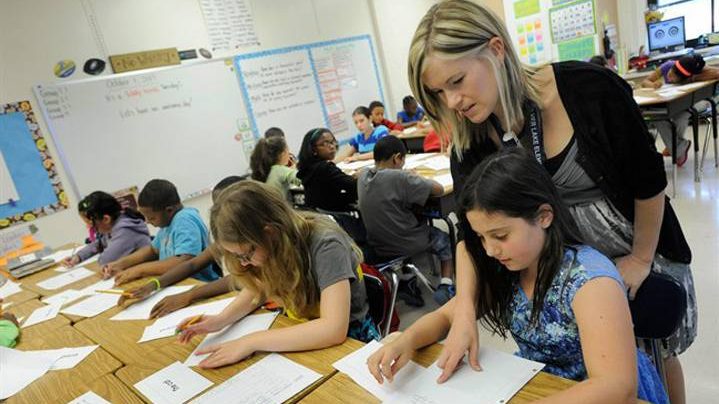Almost 800 teachers have applied to sit on the council that will address classroom conditions.

READ MORE: Nova Scotians critical of Liberals in teachers dispute, OK’d legislated contract: poll
Nine teachers will be selected out of the 779 teachers who applied to the council by yesterday’s deadline, according to a government press release. Just over eight per cent of public school teachers applied to the council.
The council is being created as part of the new contract imposed on the province’s 9,300 public school teachers by the government last week. The Nova Scotia Teachers Union fought against the legislated contract and also opposed the government’s version of the working conditions council. A previous version that the union had agreed to in negotiations included more union involvement.
A contract was legislated on teachers after they rejected three tentative agreements.
Three elementary teachers, three junior school teachers, and three high school teachers will be selected to sit on the council. The Department of Education and the Nova Scotia Teachers Union will each choose a representative who will act as co-chairs for the council. Three other members will also be chosen by the government as well as at least one student and one parent.
READ MORE: What is the new normal as Nova Scotia teachers adjust to legislated contract?
The council is expected to be formed by March 7.
- What is a halal mortgage? How interest-free home financing works in Canada
- Capital gains changes are ‘really fair,’ Freeland says, as doctors cry foul
- Ontario doctors offer solutions to help address shortage of family physicians
- Budget 2024 failed to spark ‘political reboot’ for Liberals, polling suggests
School board superintendents will decide which of the 779 teachers will sit on the board. The council is expected to deliver its first recommendations for changes to classroom conditions by April 28.
A “neutral facilitator” will also be chosen by the co-chairs to work with the council, according to the press release. An independent arbitrator can also be appointed if the parties can’t reach an agreement.
The arbitrator was added following a proposal from the NDP during the legislature’s debate on the teachers’ contract, called Bill 75.
READ MORE: Why one Liberal MLA voted in favour of a legislated teachers contract
The council will have a budget of $20 million over two years to address the issues that are brought up. The government has outlined the following priority issues for the council to tackle:
- Data collection and reporting
- Student attendance policy
- Classroom sizes for all grade levels
- A policy surrounding student discipline
- PowerSchool and Technology for Improving Education Network (TIENET)
- Student success planning
- How administrative days are timed in relation to preparation of report cards
Since last fall, teachers have spoken out about challenging classroom conditions, including class size, inclusion, and lack of textbooks, desks and other key resources.
For example, before the last tentative agreement was rejected, one high school teacher said he felt the third contract did not do enough to address caps on class sizes in upper grades. A Global News analysis found that Nova Scotia is one of only four provinces that does not have class caps for every grade level.
A second high school teacher told Global News that amending attendance and assessment policies, hiring educational program assistants, and making technical changes to PowerSchool – specifically turning off the running tally which produces an average grade – would also help improve conditions across the province.
Witnesses who testified against the legislated contract at the law amendments committee pointed to several different issues, including violence in the classroom or at school; not enough resource teachers or educational assistants; and technology and classrooms that were in disrepair or not suitable to students’ needs.
Nova Scotia Teachers Union (NSTU) president Liette Doucet, in a release Wednesday afternoon, said she’s concerned with how the selection process will be conducted.
She said there will be “no direct input from teachers through their union,” with superintendents making the selections for the council.
READ MORE: Thousands of Nova Scotia teachers rally outside province house, protesting Bill 75
“There is a strong possibility that the government will use it to co-opt and silence dissenting voices,” Doucet said in the release.
With almost 800 teachers hoping to fill nine spots, she also questioned whether having only seven days to make the selections by the March 7 date is enough.
“It’s hard to imagine how this process will be completed objectively,” she said.
Several questions were also posed in the release about the selection process including when selection interviews will be held and if the NSTU can monitor them; how council votes will be recorded and reported; what scoring system will be used; and how a dispute in the selection process will be resolved.
In an emailed statement, an Education Department spokesperson said the superintendents would work with human resources directors to make the selections and “take into consideration cultural and regional representation.”





Comments